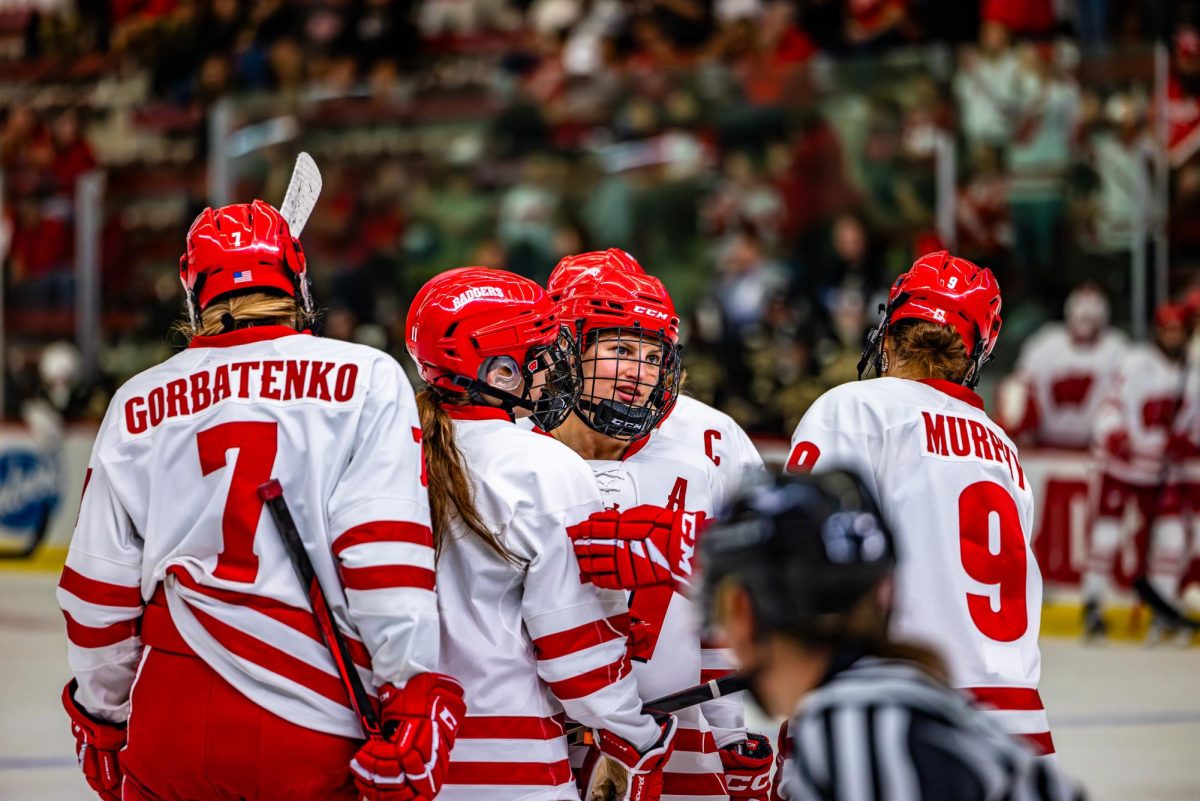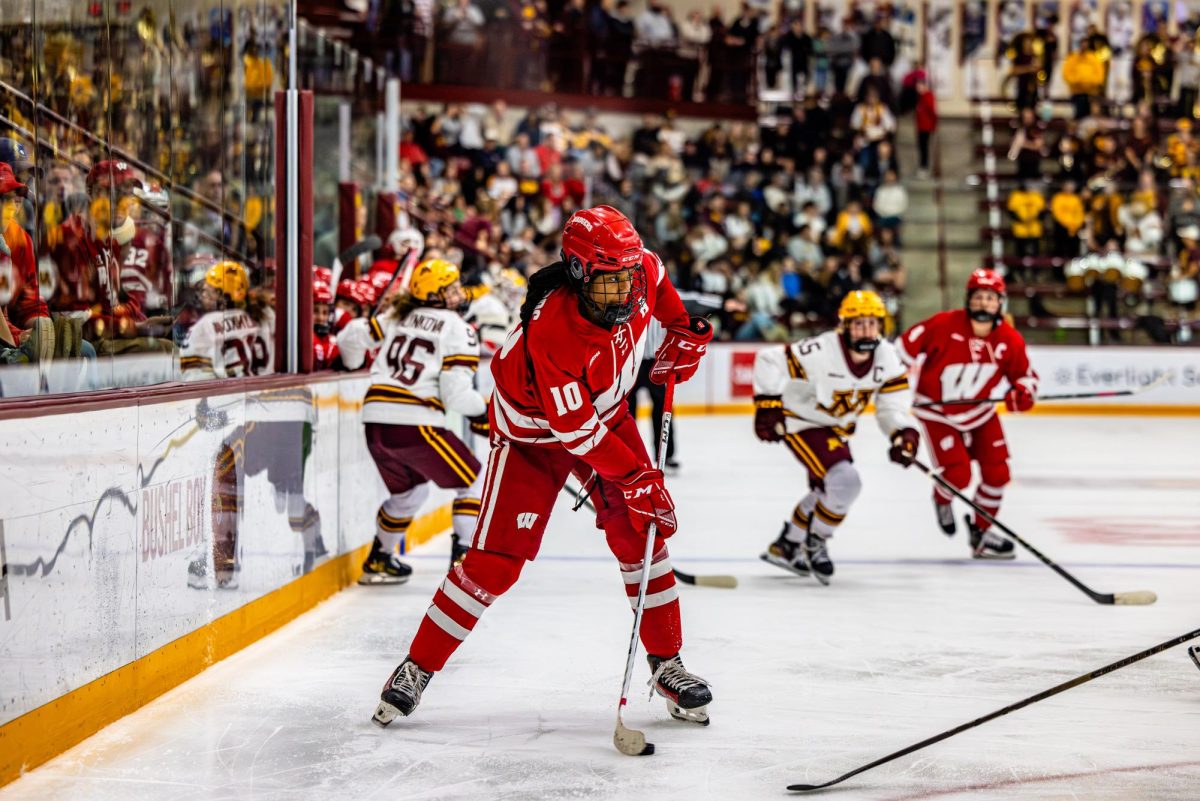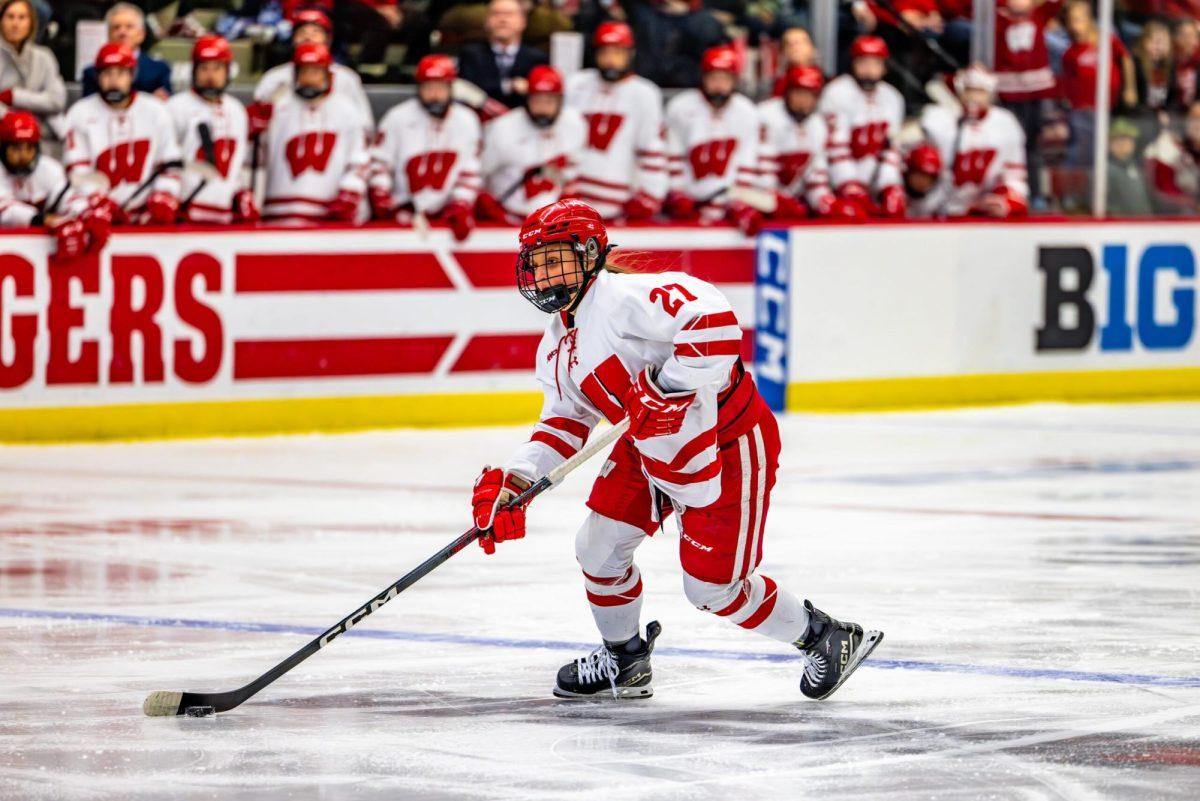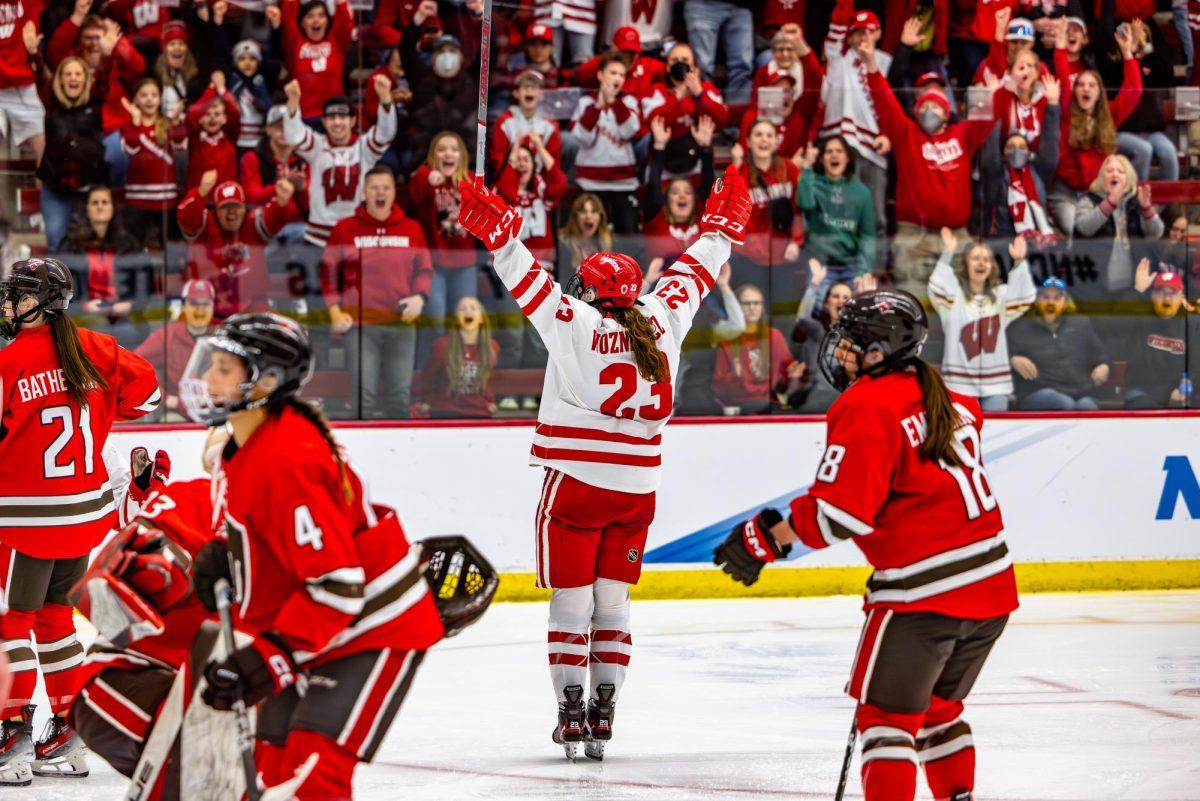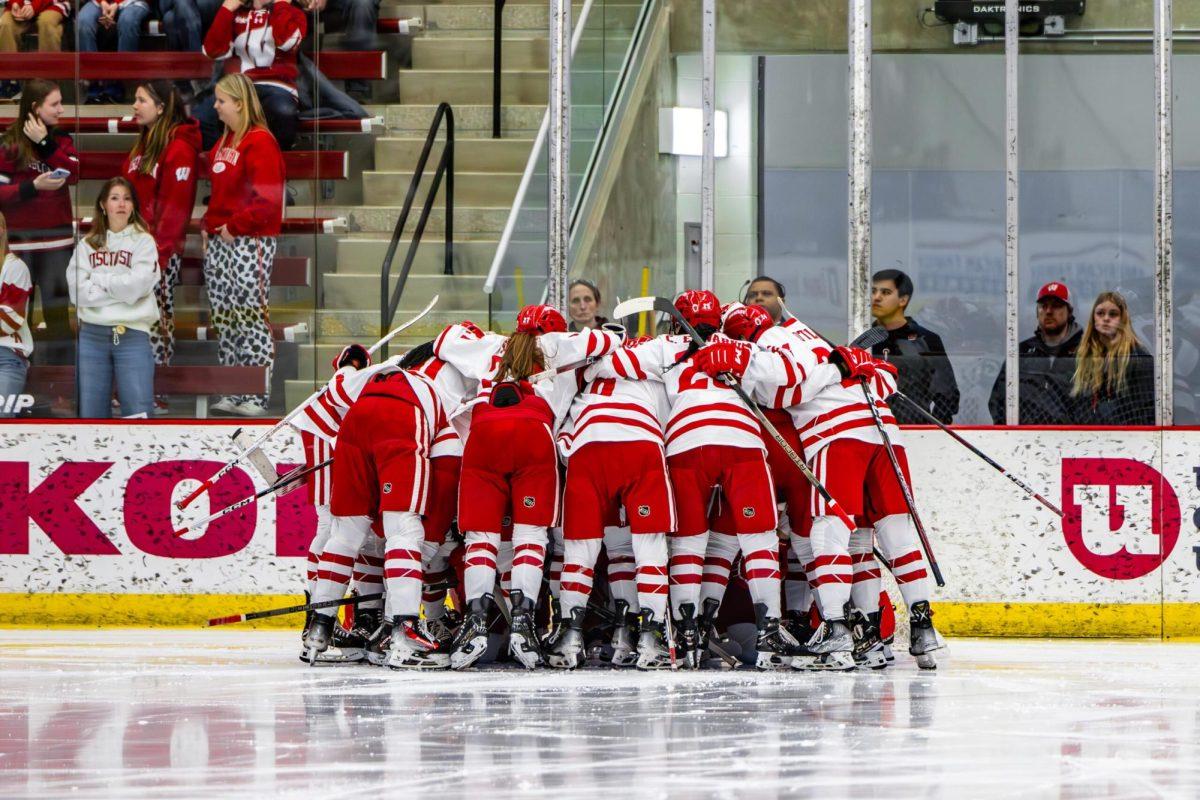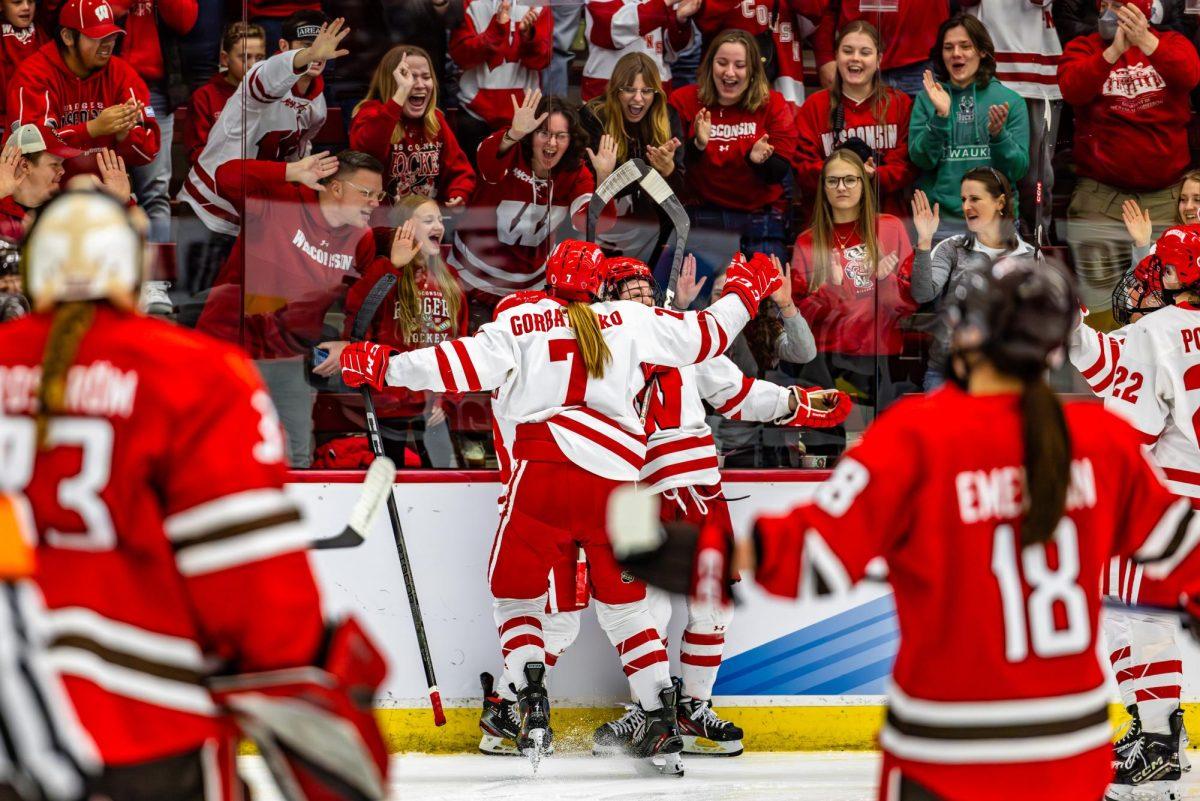
Hockey is very much a cult sport.
Ridiculous expenses, predawn practices, limited coverage and cold ice rinks headline a long list of reasons why hockey has lacked the national praise of more prominent sports like football and baseball. With that said, hockey’s quirky purists — though few in number — consider the game to be a divine activity.
Die-hard “puckheads” live for hockey extravagances like the long road trips of youth hockey, a late-night pickup game at the local rink or watching the Stanley Cup Playoffs. The sound of a puck hitting a goal-post or the sight of a punishing check can resonate in a hockey fan their own slice of heaven.
Full appreciation of the game requires tremendous effort, and therefore the most devoted of hockey fans are almost invariably raised in a “hockey family” or a “hockey environment.” That is, they had someone there at an early age showing them Wayne Gretzky tapes or pushing them on a chair at the local rink as temperatures plummeted well below freezing.
The Wisconsin women’s hockey team, fresh off their third national title in four years, is a perfect example of how hockey interest and participation germinates in environments, and families, with rich hockey history.
Five current Badgers have siblings that currently or previously were college hockey players at a different program. Freshman goalie Becca Ruegsegger’s brother Tyler is a star forward at the University of Denver; junior Geena Prough’s brother, Jeff, graduated from Brown, where he was an assistant captain in 2007-08; junior Olivia Jakiel’s brother Steve tends goalie for Curry College; another junior, forward Carla Pentimone’s brother, Joey, plays for Robert Morris; Emily Kranz, a senior forward, has a sister who played for Providence from 1998-2002.
Ruegsegger, who notched an impressive shutout last Saturday in her first career start, acknowledged her brother Tyler’s presence not only got her into hockey initially but also helped her maintain and nurture the competitive edge she needed to succeed at a high level.
“My brother has always been my hero growing up, and that’s probably the reason I started playing hockey. I was pretty young when I started,” Ruegsegger said of her brother, a sixth-round draft pick of the Toronto Maple Leafs.
“Growing up, he always shot on me in the garage and gave me pointers. We go out and skate all the time together in the summer. He’s a great role model for me.”
Freshman forward Breanne Frykas, a Manitoba, Canada, native, has perhaps the most impressive hockey pedigree on the Badgers. Frykas’ cousin is Nashville Predators head coach Barry Trotz, one of hockey’s most respected scouts and strategists.
Frykas points out that, while hockey is just a sport, there is a whole world of opportunity for players even after one’s career. Therefore, according to Frykas, hockey is more than a simple game.
“Hockey has definitely been in the family. It has motivated me to do things, for sure. [Trotz] has gone very far in hockey,” Frykas said of her cousin. “I pursue hockey because it opens up all kinds of other opportunities.”
Current Badger coach Tracey DeKeyser noted that Frykas was almost destined to be a hockey player, due in large part to her upbringing in hockey-mad Manitoba and her family background in hockey.
“Being Canadian, it’s part of the culture in Manitoba. I know her brother is playing, and her dad is highly involved in the youth hockey there,” DeKeyser said. “It goes without saying that she was going to be involved, so there is some [hockey] lineage there.”
Hockey hotbeds like Minnesota, Wisconsin, Colorado, New York, Massachusetts and Michigan provide a heavy proportion of America’s top skaters. Unlike football or baseball, where you typically see youth programs in every region of the U.S., hockey is found consistently in only a dozen or so states.
Why is this? Besides high prices, conflicting climate and limited media exposure, DeKeyser suggests that it is the presence of a guiding “hockey hand” that creates early interest in the sport.
“It’s pretty apparent that the pattern here is that they’ve had a sibling or family member that has played and help them get better,” DeKeyser said. “That makes for greater player development when they’re younger.”








